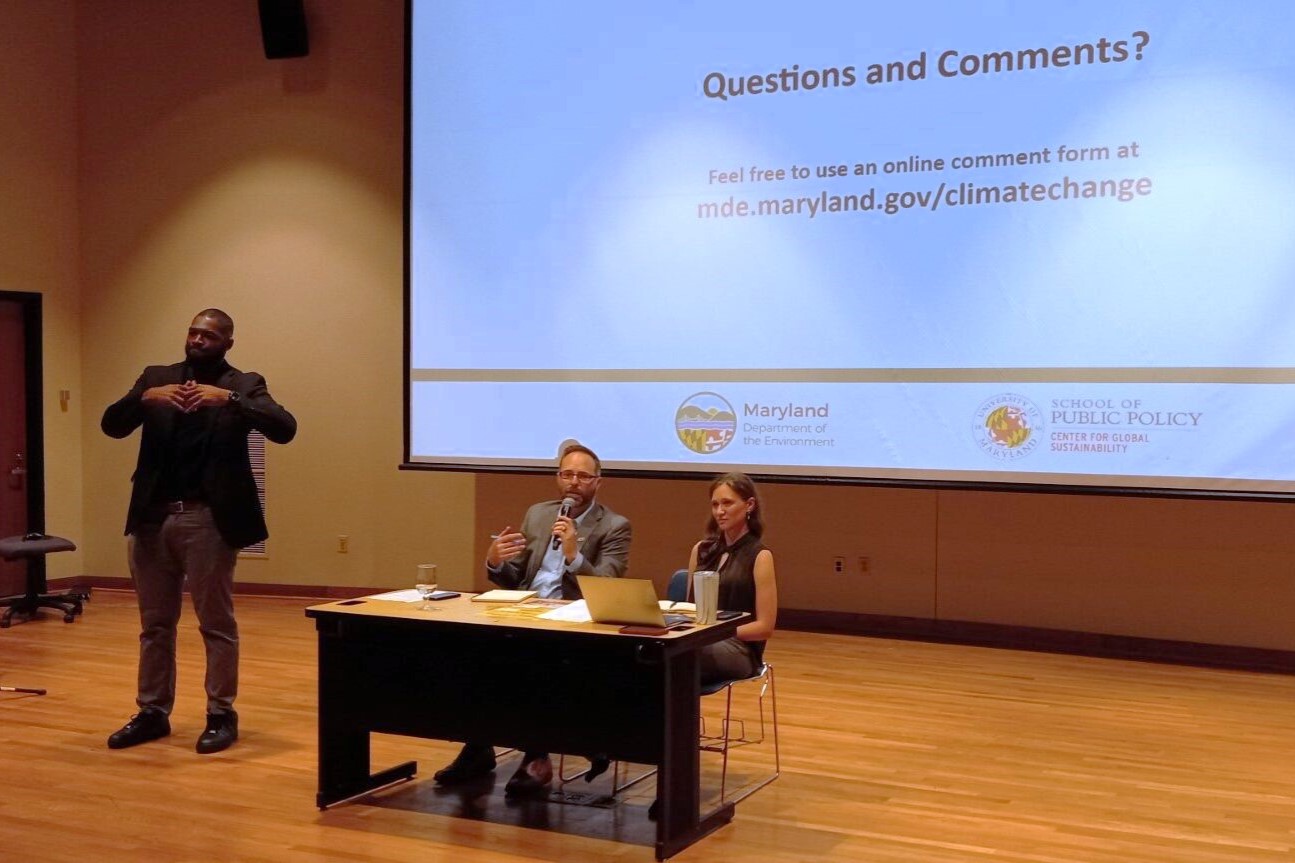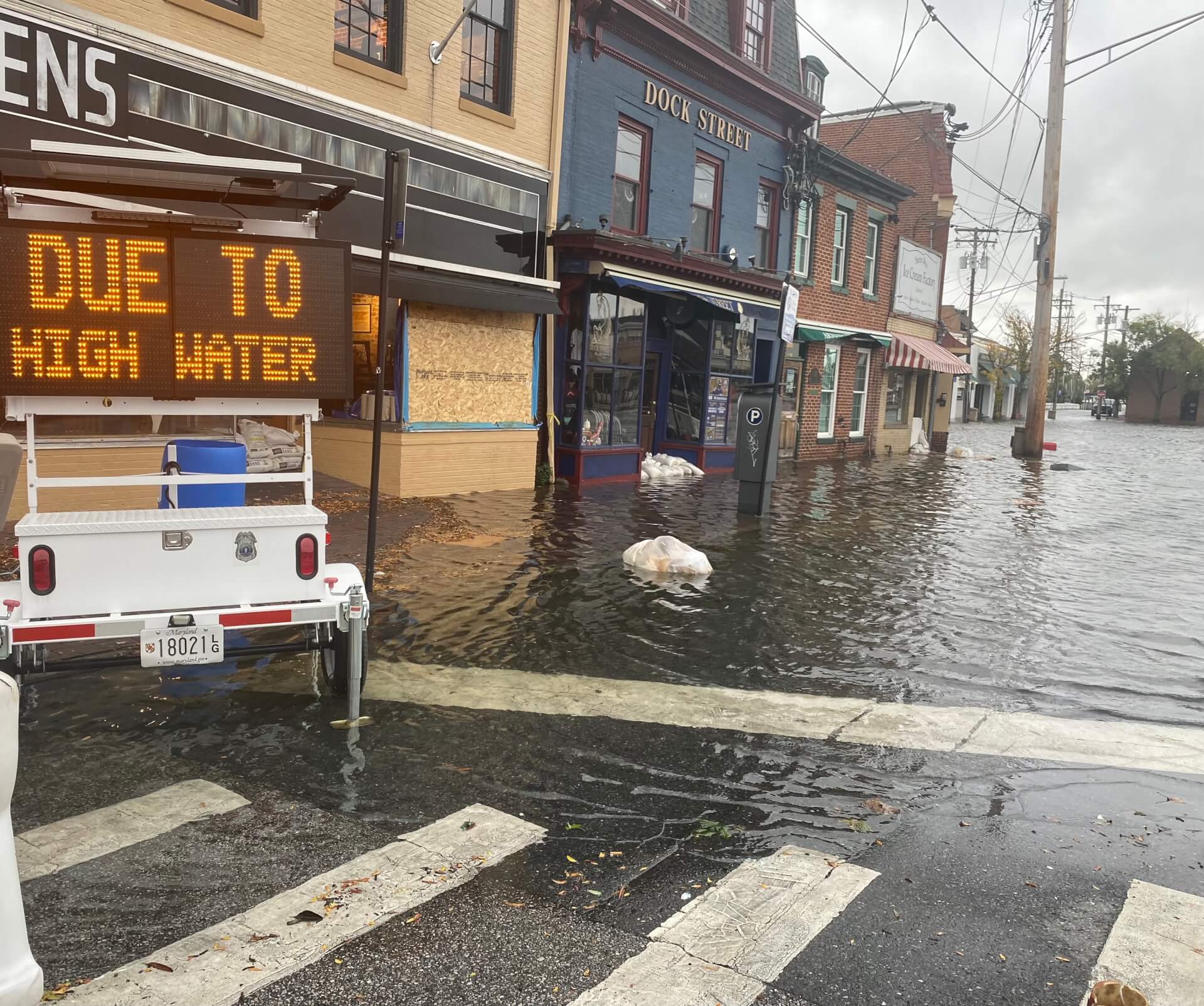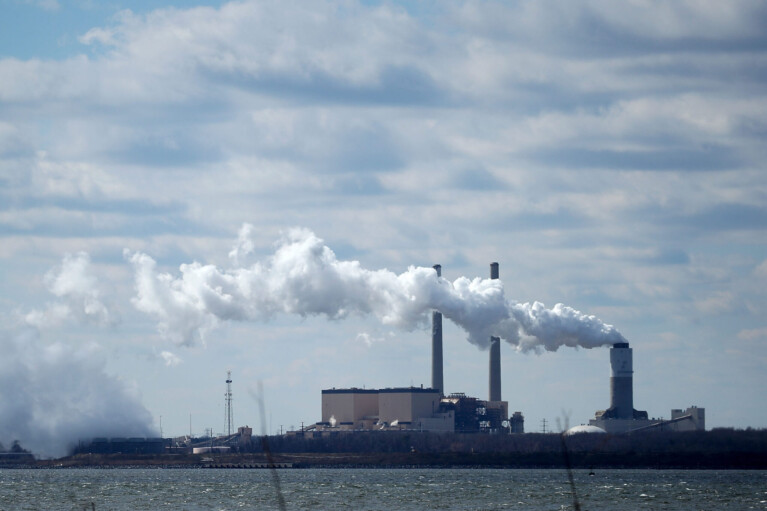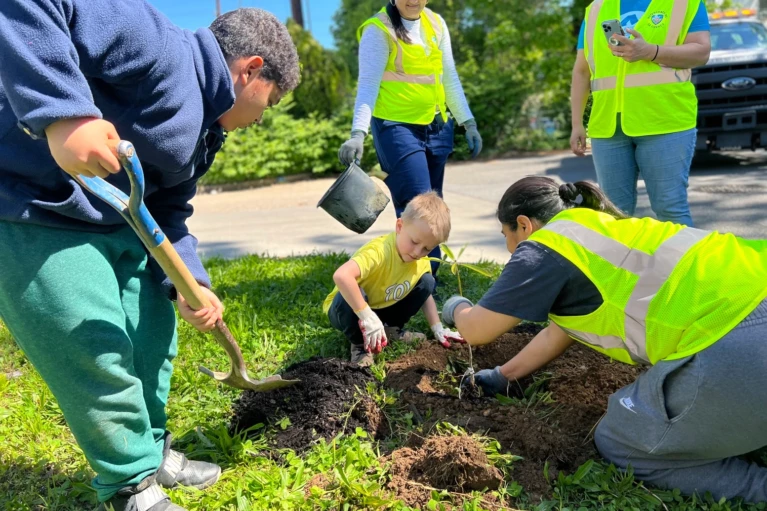State officials get an earful at first town hall on climate plan

The setting of the state government’s first public meeting Tuesday evening on a plan to achieve its extensive climate goals couldn’t have been more aspirational.
People who attended the town hall at Bowie State University parked in a lot covered by solar panels, with a handful of spaces dedicated to electric vehicle chargers. MARC trains, which transit advocates envision being a key part of the state’s climate solution, zipped by at regular intervals.
Next to the Proctor Building where the hearing was being held, the university’s science center has a rooftop greenhouse where students and faculty are conducting research on drought and food insecurity. And in the auditorium of the Proctor Building, named for the late state delegate James E. Proctor Jr., where about 50 people gathered to learn about the state’s climate plan, air conditioning wasn’t much in evidence.
All those conditions may have been coincidental, but they helped buttress the message that state leaders have their work cut out for them as they scramble to meet goals that were laid out in the Climate Solutions Now Act of 2022. As Janet Gingold, chair of the Sierra Club’s Prince George’s County Group observed, “We need more meaningful engagement starting yesterday.”
Late last month, the Maryland Department of the Environment (MDE) and the Center for Global Sustainability at the University of Maryland School of Public Policy released a document that showed possible pathways for state policymakers to achieve the climate legislation’s goal of 60% greenhouse gas emissions reductions by 2031 and carbon-neutral emissions by 2045.
“These are the most ambitious goals of any U.S. state,” said Mark Stewart, the climate change manager at MDE.
That agency-university analysis is being used as a conversation starter for the Department of the Environment to take the public pulse this summer on the state’s climate goals and use that input for a final report, to be issued in December, on what the state needs to do to achieve them.
At Tuesday evening’s meeting, Stewart and Kathleen Kennedy, the chief author of the preliminary report, laid out the details and identified how various sectors of the Maryland economy could contribute to greenhouse gas reductions.
Stewart then asked the crowd what he described as survey questions, including whether they considered certain sources of energy to be clean energy. The general consensus: solar and wind energy, definitely; hydropower and nuclear energy, maybe; woody biomass and trash incineration, probably not.
Stewart also asked whether members of the audience relied on the advice of their contractors when it came to repairing or replacing home heating devices (about half said yes) and whether they knew to ask their contractors to explain the benefits of higher efficiency heating systems (a surprising number said yes).
Stewart also asked the group for their opinions about electric vehicle charging capabilities and potential pollution reductions in the manufacturing sector.
“This is great,” he told the audience. “I’m really appreciating all this insight.”
Then came time for general audience comments, and the state officials got an earful — including from Brian O’Malley, head of the Central Maryland Transportation Alliance; Pamela Boozer-Strother, a member of the Prince George’s County Board of Education; Antoine Thompson, a business executive and leader of the Greater Washington Region Clean Cities Coalition; Jennifer Laszlo Mizrahi, a nationally recognized disability rights expert and newly-appointed member of the Maryland Commission on Climate Change; and Robin Ficker, the perennial Republican candidate who is currently running for the U.S. Senate.

Robin Ficker, a GOP candidate for U.S. Senate, spoke in favor of expanding nuclear energy. Photo by Josh Kurtz.
Among the audience’s suggestion and concerns:
- That the public needs more educating about electric vehicles and charging. One woman said she required 14 apps on her phone to reliably charge her EV;
- That nuclear power should be a greater part of the state’s carbon reduction strategy;
- That greater emphasis should be placed on using schools to teach about climate change and prepare the next generation of workers for the green transition;
- That the state work more closely with local governments on climate strategies, including doing a better job of informing cities and towns how they can access federal funding;
- That the state should focus more on reducing methane emissions as part of its effort to slash greenhouse gases;
- That the state needs to monitor local building codes to smooth the transition to green energy sources;
- That the state should do more to promote battery storage.
Bill Temmink, a teacher and environmental activist from Harford County, fretted that the state’s plan generally isn’t bold enough given the fact that the world is at a tipping point for climate change.
“This is a nice program,” he said. “But we’re in a crisis. This doesn’t do enough.”
Laszlo Mizrahi said the state’s climate document is impressive but may not account for things that could go wrong.
“The whole agenda of your plan assumes everything works perfectly,” she said. “That worries me.”
MDE and the Center for Global Sustainability will hold six more town hall meetings on the climate plan through late September: Aug. 8 at 6 p.m. at Hagerstown Community College; Aug. 19 at 2 p.m. at Salisbury University; Sept. 5, online, from 1 p.m. to 2:30 p.m., for elected officials only; Sept. 12, at 6 p.m., at Morgan State University; Sept. 19, at 6 p.m., at the College of Southern Maryland in Prince Frederick; and Sept. 26, online, from 6 p.m. to 7:30 p.m., for the general public.




 Creative Commons Attribution
Creative Commons Attribution